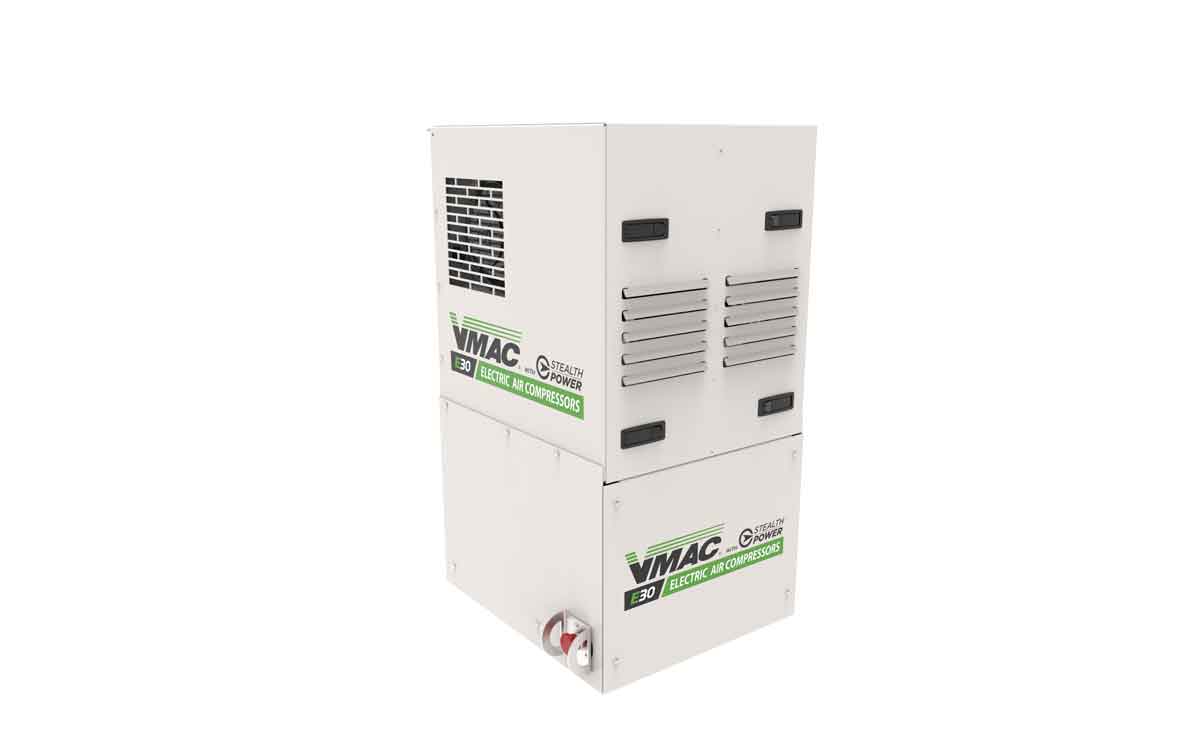Important Tips for Safely Operating a Portable Air Compressor

There’s a science to the safe operation of air compressors — some physics, some chemistry — and a basic understanding of that science with proper operating procedures are vital on any jobsite. Mobile air compressors are used in a variety of applications — from oil and gas, over utilities, in mining and, of course, in construction. No matter the elements, portable compressors need to be able to operate effortlessly in any given circumstance with key startup and operational procedures to follow.
Pre-Startup/Startup
Before startup, always understand the temperature of your environment and air compressor. Most newer models offer a cold weather package as standard or as an option, but older models may have trouble starting if the ambient conditions are colder. In addition, make sure you are wearing proper PPE and that whip socks or proper securing measures are in place. There should be whip checks on all applicable devices, at each connection point between hose, tool and air compressor. If not, then your hoses are not secured. Always start your operations with initial checks on coolant, fuel and oil levels, and double check if there’s any indication of internal leaks like oil or coolant sprayed on the undercarriage.
If you’re mounting your air compressor on any service trailer, be cognizant of your air flow inside the tub or canopy. Air compressors are designed to bring proper air flow when the hood is down, so having a unit mounted improperly can lead to overheating issues. Limited air flow can cause overheating for not just diesel compressors but electric too. It’s also critical to be mindful of the engine exhaust on diesel engines. The exhaust cannot be covered, and the operator needs to be aware of the direction the exhaust is pointed and what materials may be affected.
Regardless of what the consumption ratio is, it’s good practice to fill up the DEF tank as you fill up your fuel tank. If you run out of DEF and continue to try and operate the machine, you will eventually be locked out and unable to start the unit. It’s a shutdown that will require a certified technician to address.
Operation

During operation, it’s critical that you operate the unit with the canopy closed. All portable air compressor models are designed to draw air through the machine canopy. An operator may think opening the canopy allows for more air flow, but you’re doing a disservice to your operations by decreasing efficiency by causing the engine to get hotter.
Be cognizant of the alerts or alarms on the controller. Low level alarms and alerts could be because of low coolant, low fuel or low or no DEF. Your controller is programmed to alert you, so if you take care of the alerts, you’ll prevent alarms.
Respect the air. Whether it’s large volume, high pressure or low volume, low pressure, air should never be pointed at someone. By blasting someone with pressurized air, you are putting them at risk not only from the pressure itself but also from the oil and particles that could be dangerous to their well-being.
Shutdown

Operators can get in a hurry during the shutdown process and may hit the Emergency Stop button. E-Stops are meant for actual emergencies, so when you press it, you’re bypassing all shutdown procedures that can cause harm to the mechanical components. Once you initiated the shutdown process, most machines will go through the routine automatically. This automatic process can be finished within a few minutes and can be completed by the time you cleanup the jobsite.
Air compressors are designed to regenerate on their own while still in operation, so you don’t need to manually stop it. The soot level will increase each time you shut down during regeneration, then eventually it may lead you to not be able to start the machine.
Understanding your air compressors is vital before you break ground. Every project is different, and not every application requires the same level of pressure or flow. A holistic approach is needed to maintain air quality, as different components can negatively affect performance.
Mini excavators are making big waves on jobsites all over North America. Click here for the latest news on these machines and the companies that make them.




